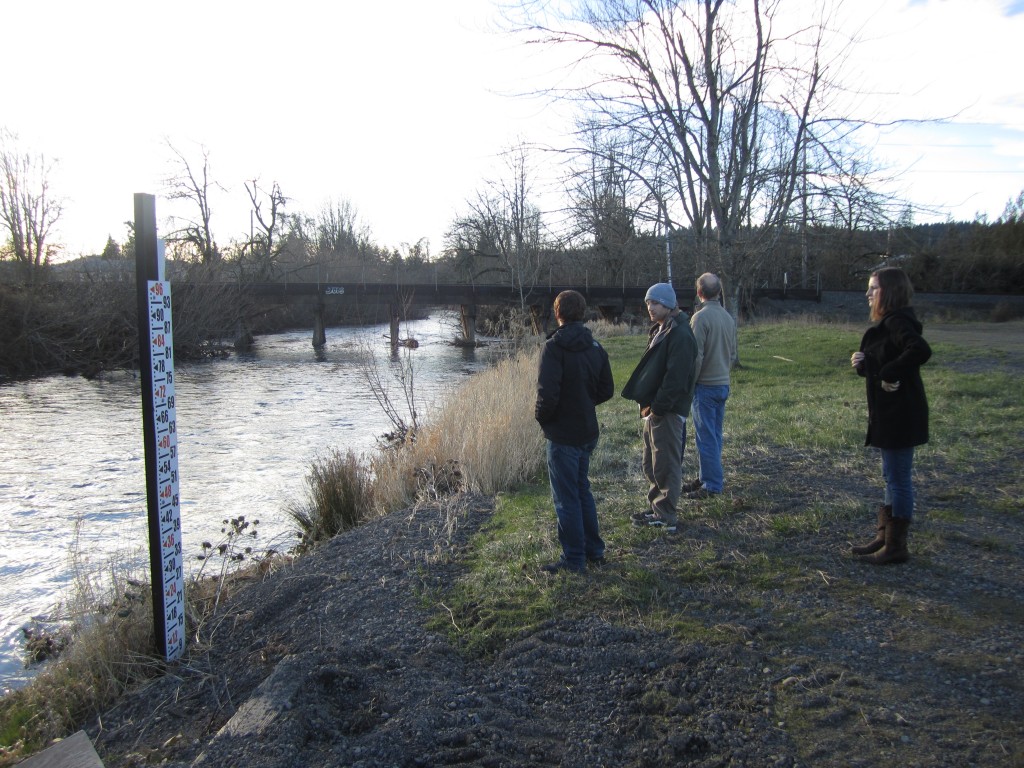The Secret to an Effective Meeting: Sweets by Casey Weisinger
My Community Planning Workshop (CPW) team and I have been helping small communities improve their surface water quality and adhere to state and federal regulations. After each meeting we recap successes and opportunities, thinking of ways we can apply our CPW classroom learning to subsequent meetings. We recently completed our third trip to Gold Hill, Oregon, since our first meeting in February. At this meeting, we put our reflection and theory into action and experienced…well, an effective meeting. Here are our quick tips for you:
- Develop relationships. Don’t just ask what your committee members’ roles in the community are or how many neighbors they have, get to know them as people. This way, you build trust and assurance in one another. We wanted to get know our steering committee and partners on a more personal level, outside of the formal meeting setting. Before our meeting, we had a picnic with them in a riverfront park and discussed a wide range of topics from hummingbirds to city events, and even played with a puppy named Dulces (Spanish for sweets). Building a rapport with our steering committee set the tone for a productive meeting where everyone felt more comfortable listening and sharing ideas.
- Always recap purpose. Reviewing the goals and vision for a meeting helps set expectations, proactively avoid tangents, and accomplish meeting results. We are developing a multifaceted water quality program. In the past, our goals got lost in all the material presented. So at the beginning of the meeting, we reviewed what we are trying to produce and why, addressing both the big picture and this particular meeting. This helped re-orient everyone for a productive and focused conversation.
- Feng Shui the meeting room. Okay maybe not literally, but setting up the room in a way that includes and stimulates conversation will allow for effective engagement and dialogue. In our previous meetings we noticed not everyone was able to sit at the table, which made full participation difficult. This time we moved the tables into a u-shape to facilitate open discussion and ensure that everyone felt included.
These tips are not exhaustive, but can produce a meeting with a clear purpose and results. By developing relationships we built trust in one another, by recapping purpose we proactively addressed recurring questions, and by rearranging the meeting room we created more discussion with different stakeholders than in previous meetings. With Valentine meetings, effective meetings, and dogs named Dulces how much sweeter can our project get?
Other posts by Casey here.
More about the Community Planning Workshop(CPW)


